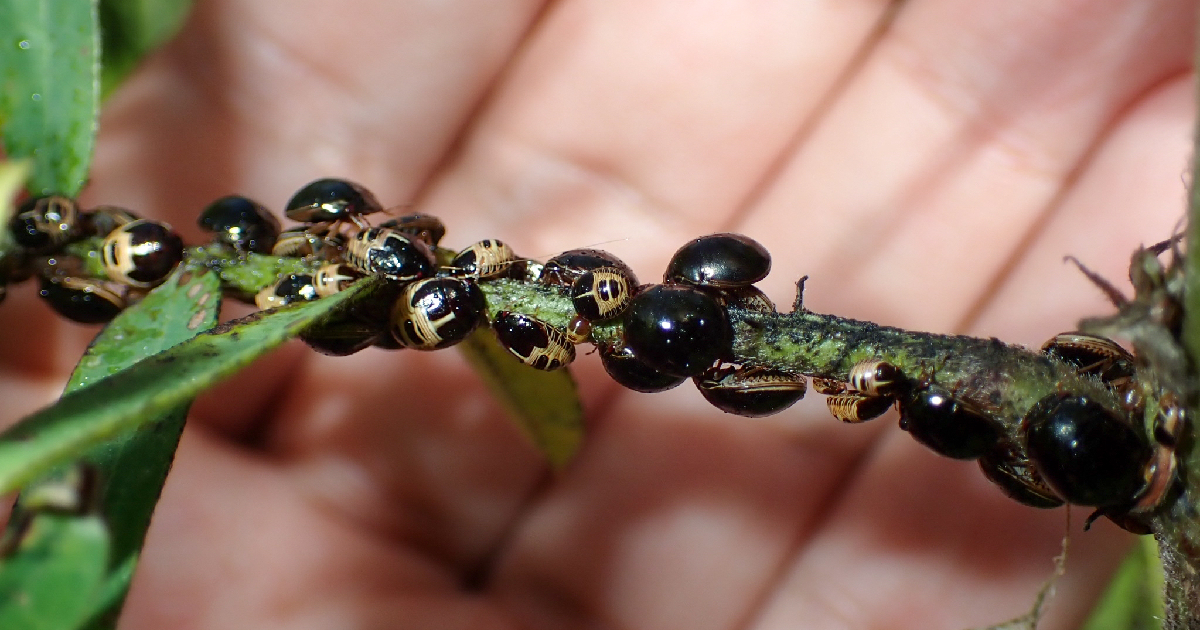
A plague of black bugs is wreaking havoc on bean plantations in municipalities of the Guantánamo province, according to official sources.
Reported for the first time in Cuba at the beginning of last June, the invasive pest Brachyplatys subaeneus has caused damage to 55 hectares of gandul beans, caballero beans, caupí, and habichuela, in the municipalities of Imías, Maisí, and Baracoa, according to the local broadcaster Radio Guantánamo.
The also known as black bean bug feeds on the leaves and stems of plants, whether in its nymph stage or in adulthood. This exotic pest causes wilting and discoloration of the crop, in addition to stunting its growth.
Judith Medina Peláez, head of the Plant Health Department, indicated that so far the arthropod is not on the official list of quarantine pests in Cuba.
A quarantine pest is one that may have potential economic importance for the endangered area, according to the International Plant Protection Convention.
However, the effective control of the black bug does represent a challenge for the Agriculture delegation in Guantánamo, acknowledged the brief note from the radio station.
To contain the spread of the plague, the chemical products Bimida, Bunker, and Cypermethrin are being applied, in addition to using Beauveria bassiana, an entomopathogenic fungus that allows for the biological control of the population of numerous pests.
According to Radio Guantánamo, surveillance has also intensified in bean planting and the training of farmers, technicians, and phytosanitary agents regarding measures to curb the proliferation of the pest.
The Guantanamo newspaper did not provide further details about the emergence of this pest in Cuba, nor about the impact it may have in the medium and long term on grain production.
The presence of this invasive species in the country has barely been mentioned by other official media. In the middle of the month, the broadcaster Radio Cumanayagua reported on a training session about the pest for producers, specialists, and phytosanitary technicians in the province of Cienfuegos.
The production of beans, a traditional food in the diet of Cubans, has experienced a progressive decline in the country, due to a lack of fuel and pesticides, the inefficiency of the state agricultural system, and the onslaught of pests.
As a consequence of the decline in production, beans have become one of the products whose prices have experienced a considerable increase amid the rising inflation in the national economy in recent years.
Meanwhile, the government accuses delays, month after month, in the delivery of the beans that it sells in a regulated manner through the so-called supply booklet, or it reduces to ridiculous amounts the already meager quotas of the basic basket for each person, which forces the population to turn to the non-state market, where they fall victim to exorbitant prices that are beyond their means.
What do you think?
COMMENTFiled under: